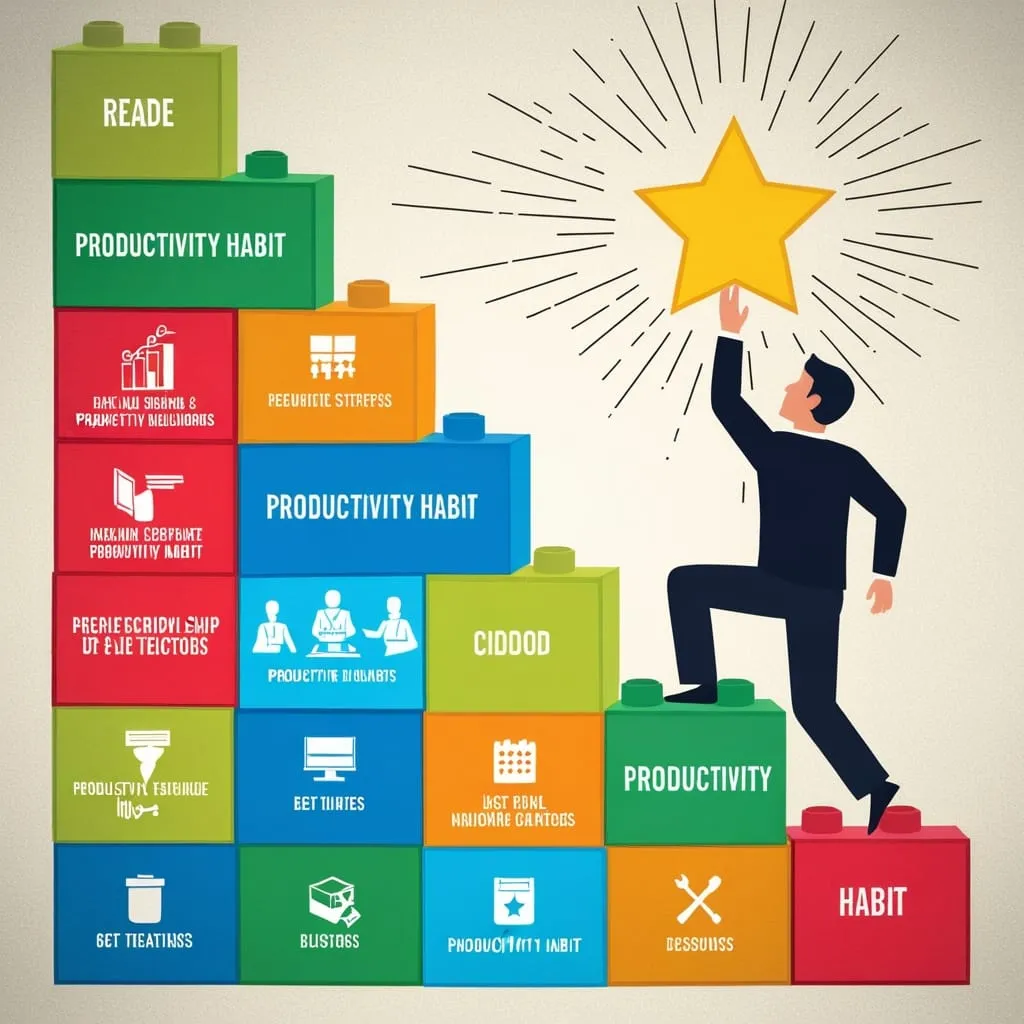Time Budgeting: The Secret Weapon for Skyrocketing Productivity
Ever feel like there aren't enough hours in the day? You're not alone. In today's fast-paced world, managing time effectively isn't just a neat trick - it's essential for success. Enter time budgeting, the game-changing strategy that can transform your workday from chaotic to controlled.
So what exactly is time budgeting? Think of it like managing your money, but instead of dollars and cents, you're dealing with minutes and hours. It's all about planning and organizing your time with precision, making sure every moment counts.
Let's dive into how you can make time budgeting work for you.
First things first: you need to figure out where your time is actually going. For the next couple of weeks, track everything you do in 15 or 30-minute chunks. And I mean everything - client meetings, lunch breaks, even those moments when you're zoning out scrolling through social media. Be brutally honest with yourself here. The goal is to get a clear picture of your time usage, warts and all.
Once you've got your time log, it's time to play detective. Look for patterns and trends. Are you spending way more time on emails than you thought? Are your "quick" coffee breaks turning into hour-long gossip sessions? This step can be eye-opening, and sometimes a little uncomfortable. But hey, awareness is the first step to improvement, right?
Now that you know where your time is going, it's time to prioritize. Not all tasks are created equal, and it's crucial to focus on what really matters. Ever heard of the Eisenhower Matrix? It's a nifty tool that helps you categorize tasks based on their urgency and importance. Use it to figure out what needs your attention now, what can wait, and what you might be able to delegate or ditch entirely.
Picture this: you start each day with a clear list of the five most important things you need to accomplish. These aren't just random tasks - they're the big-ticket items that align with your overall goals. Maybe it's nailing that presentation for a potential client, or finally tackling that complex financial plan you've been putting off. By prioritizing these high-impact tasks, you're making sure your time and energy are going where they'll make the biggest difference.
Next up: time blocking. This is where the rubber meets the road in time budgeting. Basically, you're carving out specific chunks of time for different activities. Maybe you block off 9-11 AM for focused work on client portfolios, 11-12 for returning calls and emails, and so on. The key here is to stick to your schedule as much as possible. It might feel a bit rigid at first, but trust me, it works wonders for your productivity.
Time blocking helps you avoid the productivity killer that is multitasking. Instead of juggling a million things at once (and doing none of them well), you're giving each task your full attention. It's amazing how much more you can accomplish when you're truly focused.
Of course, we can't talk about productivity these days without mentioning technology. There are tons of tools out there that can help you manage your time more effectively. CRM systems can keep all your client info in one place, making it easier to prepare for meetings and follow up on tasks. Automation tools like Zapier can take care of repetitive tasks, freeing up your brain power for more important stuff.
But here's the thing - all the fancy tech in the world won't help if you don't have a solid plan. That's why daily planning is so crucial. Take a few minutes each morning (or better yet, the night before) to review your schedule, prepare for meetings, and set your priorities for the day. It's like creating a roadmap for your workday.
And don't forget to build in some time for proactive work. You know, those important-but-not-urgent tasks that often get pushed to the backburner. Maybe it's reaching out to potential clients, or brainstorming ways to improve your services. Dedicating even 20% of your week to this kind of work can pay off big time in the long run.
Now, I know what you're thinking - this all sounds great in theory, but what about when real life throws a wrench in your carefully planned schedule? That's where flexibility comes in. Your time budget isn't set in stone. Review it regularly and be willing to make adjustments as needed. Maybe you realize you need more time for client meetings, or that your marketing efforts aren't as time-consuming as you thought. The key is to stay adaptable.
Speaking of staying flexible, make sure you're not falling into the trap of over-scheduling. It's tempting to try and pack every minute of your day with productive activities, but that's a recipe for burnout. Leave some buffer time in your schedule for unexpected tasks or interruptions. And for Pete's sake, don't forget to take breaks! A quick walk or a few minutes of mindfulness can do wonders for your focus and overall well-being.
Remember, the goal of time budgeting isn't just to cram more work into your day. It's about working smarter, not harder. It's about creating a balance that allows you to be productive at work while still having time for the other important things in life.
Imagine ending each day feeling accomplished instead of overwhelmed. Picture having time for both your work responsibilities and your personal life. That's the power of effective time budgeting.
Let's bring this all to life with a real-world example. Say you're a financial advisor with a packed schedule. Here's how you might structure your day using time budgeting principles:
8:00 AM - Rise and shine! Kick off your day with a healthy breakfast and some light exercise. 9:00 AM - Time to get down to business. Spend 90 minutes prepping for client meetings. 10:30 AM - Back-to-back client meetings for the next hour and a half. 12:00 PM - Lunchtime! Step away from your desk and recharge. 1:00 PM - Dive into case preparation for upcoming client reviews. 2:30 PM - Switch gears to focus on marketing efforts. 3:30 PM - Take a breather. Use this time to stretch, meditate, or just clear your head. 4:00 PM - Wrap up your day with some proactive work, like reaching out to potential clients or brainstorming new service offerings.
Of course, this is just an example. Your ideal schedule might look completely different. The important thing is to find a rhythm that works for you and helps you make the most of your time.
At the end of the day, time budgeting is all about being intentional with how you spend your hours. It's about saying no to time-wasters and yes to the activities that truly matter. It's about working with purpose and focus, rather than just reacting to whatever comes your way.
So why not give it a shot? Start by tracking your time for a couple of weeks. Then, use what you learn to create a time budget that aligns with your goals and priorities. It might take some trial and error to get it right, but stick with it. Before you know it, you'll be amazed at how much more you're able to accomplish - and how much less stressed you feel doing it.
Remember, you've got the same 24 hours in a day as everyone else. It's how you use them that makes all the difference. So go ahead, take control of your time. Your future, more productive self will thank you.






